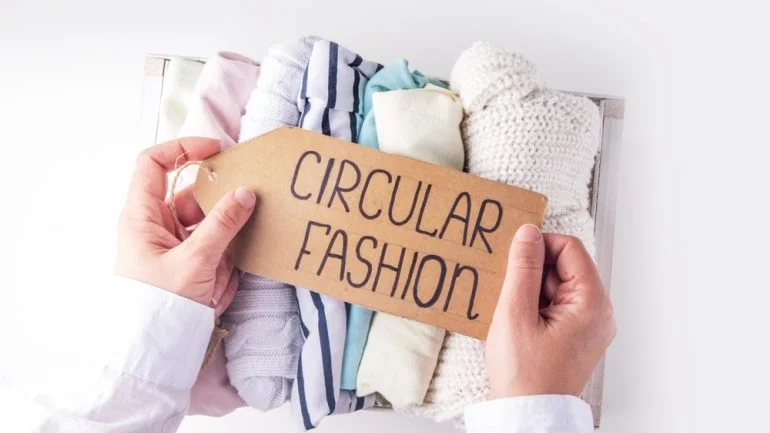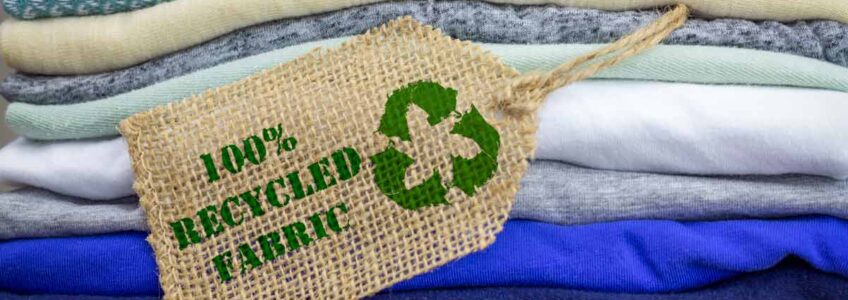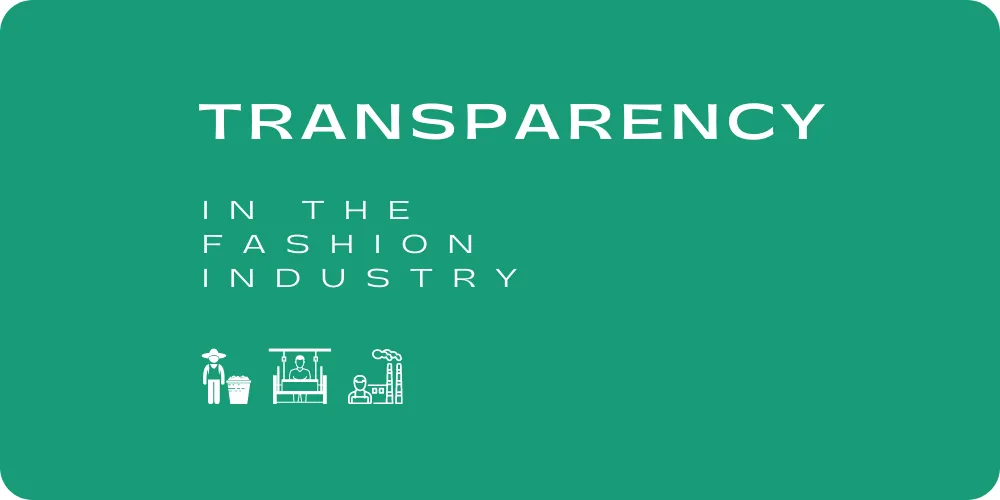In recent years, sustainable companies have taken center stage in luxury fashion, showing us that eco-conscious style isn’t just a trend—it’s the future. These brands are pioneering a shift from fast fashion’s wasteful habits to more responsible practices, setting new standards for quality, transparency, and environmental impact. Let’s dive into how some of these brands are blending high fashion with eco-friendly innovation, creating pieces that look fabulous and feel great to wear, knowing they’re better for the planet.

1. Transforming Fashion with Sustainable Materials
Many sustainable companies are leading the way by rethinking the materials they use. Instead of conventional fabrics, which often rely on heavy chemical processes or non-renewable resources, these brands are opting for organic, recycled, and plant-based materials. For example, Stella McCartney, a pioneer in sustainable luxury, has committed to using plant-based leather and sustainably sourced cotton. Her collections combine elegance with environmental awareness, showing the world that luxury doesn’t have to come at the planet’s expense.
Beyond leather alternatives, sustainable companies are exploring materials like organic cotton, hemp, and bamboo. Organic cotton requires far less water and is grown without harmful pesticides, which benefits farmers and the ecosystem. Meanwhile, bamboo and hemp offer biodegradable alternatives that are softer and more breathable than their synthetic counterparts. By using these materials, sustainable companies reduce the environmental impact of their products while offering consumers high-quality, eco-friendly choices.
Then there’s Patagonia, a brand known for its commitment to recycled materials. Patagonia uses recycled polyester and organic cotton across many of its products, transforming plastic waste into durable, stylish outerwear. It’s not just about using recycled materials for them; Patagonia continuously innovates to create durable products that reduce the need for replacements. Their approach is proof that sustainable companies can be both fashion-forward and highly functional, without sacrificing quality.
Click here to learn more about sustainable materials
2. Ethical Production and Fair Labor Practices
Sustainable companies are also pushing for fair labor practices, making ethical production a core value. Unlike fast-fashion brands that focus on rapid production at low costs, eco-conscious luxury brands prioritize working conditions and fair wages for everyone involved in the process. Take Everlane, for instance. They’re known for “radical transparency,” a practice that allows consumers to see where each product was made and how much it costs to produce. Everlane’s factories meet high standards for worker safety and pay, proving that transparency and ethics can be part of a sustainable luxury brand’s DNA.
Ethical production doesn’t just apply to fashion labor but also impacts the communities and ecosystems that supply raw materials. Sustainable companies like Veja have taken this a step further by supporting organic cotton farmers and using fair trade practices to source rubber for their shoes. Veja’s approach helps to uplift communities by providing fair wages and environmentally friendly practices, while also creating high-quality products. Knowing that your luxury purchase supports fair labor adds value to each item you buy.
Another shining example is People Tree, a brand that specializes in fair trade fashion. People Tree partners with artisans and small-scale producers to bring beautifully handcrafted clothing to the luxury market. Each item supports traditional skills and local economies, connecting consumers to the hands that made their garments. This emphasis on craftsmanship and community support is what sets sustainable companies apart—they bring humanity back into fashion.
3. Reducing Waste Through Circular Fashion and Innovation
Innovative sustainable companies are adopting circular fashion models to combat waste. Circular fashion involves creating products designed to be reused, recycled, or composted at the end of their lifecycle, reducing overall waste. Eileen Fisher, for example, has been a leader in circular fashion with her “Renew” program. Customers can return worn Eileen Fisher garments, which are then cleaned, mended, and resold, giving each piece a second life. This closed-loop system helps reduce waste and allows consumers to participate in the sustainable cycle.
Similarly, luxury resale platforms like The RealReal have partnered with sustainable companies to promote the resale of high-quality pieces. The RealReal authenticates and resells designer items, making it easy for shoppers to find luxury fashion that aligns with their values. This model keeps clothing out of landfills and allows shoppers to purchase luxury items at a fraction of the cost, while supporting sustainability. Sustainable companies participating in circular fashion are showing us that fashion doesn’t have to be disposable.
Rental services are another way sustainable companies are shifting the landscape. Brands like Rent the Runway allow you to rent luxury items for special occasions, reducing the need to buy pieces that may only be worn once. Rental services cater to fashion enthusiasts who crave variety while supporting a low-waste model. Renting luxury clothing is a practical option that meets high fashion standards while reducing demand for overproduction.
4. Transparency: Sustainable Companies Building Consumer Trust
Transparency has become a hallmark of sustainable companies, and it’s essential for earning consumer trust in today’s fashion industry. Brands like Mara Hoffman, for instance, openly share information about their sourcing, production, and environmental impact. By detailing each step of the supply chain, sustainable companies allow consumers to make informed choices, knowing exactly what they’re supporting. This level of transparency creates a stronger connection between brands and their customers, empowering buyers to shop according to their values.
Honest disclosure isn’t just about where products are made but also involves sustainability goals and areas for improvement. Some sustainable companies even publish annual sustainability reports, which outline their achievements, challenges, and future plans. Brands like Reformation make these reports accessible, showing both their successes and the steps they still need to take to become more sustainable. For conscious shoppers, this openness builds trust and shows that sustainable companies are genuinely invested in creating positive change.
Ultimately, leading sustainable companies are raising the bar for what luxury fashion can be. They show us that high-end style and eco-friendly practices can—and should—go hand in hand. By pioneering sustainable materials, ethical production, waste reduction, and transparency, these brands are changing the industry for the better. Sustainable fashion is no longer just an alternative; it’s a powerful movement that is reshaping luxury fashion, setting new standards, and helping you make purchases that reflect your values.
Sustainable Luxury Materials to Watch For: Embrace Eco-Friendly Elegance

The world of luxury fashion is evolving, and so are the materials behind its most beautiful creations. Sustainable companies are leading the way with innovative, eco-friendly materials that don’t just look good but also make a positive impact on the planet. If you’re on the lookout for sustainable luxury, these materials are changing the game in elegant ways. Let’s dive into some of the most exciting eco-friendly fabrics and fibers transforming high fashion.
Plant-Based Leathers: Luxury without Compromise
One of the biggest shifts in luxury fashion is the move from traditional leather to plant-based alternatives. Sustainable companies are pioneering alternatives that look and feel just like leather, without harming animals or the environment. Plant-based leathers, made from sources like pineapple leaves, cactus, and mushrooms, are not only cruelty-free but often have a much lower carbon footprint than animal leather.
Pineapple leather, known as Piñatex, is one of the first plant-based leathers to make waves in luxury fashion. Created from pineapple leaf fibers, Piñatex is durable, flexible, and has a unique texture that brings an exotic touch to fashion. You’ll find it in everything from handbags to shoes, all with a luxurious, ethical twist. It’s a smart alternative that supports pineapple farmers by utilizing what would otherwise be agricultural waste. So, when you’re browsing for sustainable luxury pieces, keep an eye out for brands using Piñatex—you’ll get style and sustainability in one beautiful package.
Cactus leather is another buzzworthy innovation that’s gaining popularity among sustainable companies. Made from the prickly pear cactus, it’s a low-water, resilient material that is both soft and stylish. The cactus plant itself requires minimal water to grow, which makes it a fantastic eco-friendly option. Brands using cactus leather offer beautiful pieces that are luxurious, sustainable, and even biodegradable, leaving a much smaller impact on the planet. Plus, cactus leather’s smooth texture and durability make it ideal for items you’ll want to keep in your wardrobe for years.
And then there’s mushroom leather, a fantastic material that grows quickly and decomposes naturally. Mushroom leather, or mycelium, has a soft, suede-like feel that’s perfect for elegant designs. Because mushrooms grow so rapidly and require minimal resources, they’re an incredibly sustainable choice for fashion materials. Mycelium-based products have a beautiful texture, and they’ve started appearing in everything from designer handbags to statement boots. Sustainable companies are betting on mushroom leather to bring something new to luxury fashion—and it’s an exciting development worth watching!
Organic and Regenerative Fibers: Cotton and Beyond
While cotton has long been a staple in fashion, not all cotton is created equal. Traditional cotton farming can be resource-intensive, requiring significant amounts of water and pesticides. Fortunately, sustainable companies are now sourcing organic cotton that’s grown without toxic chemicals and uses less water. Organic cotton feels soft and breathable, making it a great choice for high-quality, luxurious clothing that’s also gentler on the planet.
Regenerative cotton is an even newer development that takes sustainability a step further. Regenerative farming techniques focus on soil health, biodiversity, and carbon sequestration, which means they don’t just reduce harm—they actively improve the environment. Sustainable companies investing in regenerative cotton are making a positive impact by supporting agricultural practices that restore ecosystems. When you choose garments made from organic or regenerative cotton, you’re supporting a cleaner, healthier environment while enjoying premium quality.
Hemp is another fiber that’s gaining popularity in sustainable luxury fashion. Not only does it grow quickly and without pesticides, but it’s also incredibly durable, making it ideal for long-lasting pieces. Hemp is naturally breathable, softens over time, and has a luxurious texture. Sustainable companies love hemp because it can be grown with very little water and doesn’t require chemical treatments, making it a fabulous eco-friendly fabric for everything from casualwear to high-end fashion.
Then there’s linen—a classic fabric that’s as elegant as it is sustainable. Linen is made from flax, a plant that requires little water and no pesticides. It’s light, breathable, and perfect for both warm and cool weather. Sustainable companies often turn to linen for its natural resilience and effortless chic. When you invest in luxury pieces made of linen, you’re choosing a material that’s both timeless and eco-friendly. Linen’s durability means it lasts for years, giving you a beautiful, responsible choice for your wardrobe.
Recycled Fabrics: Giving Waste a New Life
Sustainable companies are also finding ways to turn waste into luxury through recycled fabrics. From plastic bottles to discarded fabrics, recycled materials are reducing waste and adding value in the world of high-end fashion. Recycled polyester, for instance, is made from repurposed plastic bottles and offers the same softness and durability as traditional polyester. It’s widely used in activewear and outerwear, transforming waste into stylish essentials.
One standout in recycled materials is Econyl, a regenerated nylon made from discarded fishing nets, fabric scraps, and other industrial plastic waste. Econyl is a top choice for sustainable luxury swimwear and activewear because it’s durable, flexible, and supports a circular economy. When you buy items made from Econyl, you’re supporting a process that diverts waste from oceans and landfills, all while looking fabulous.
Recycled wool and cashmere are also making a splash in sustainable fashion. By reusing existing fibers, sustainable companies can create beautiful, high-quality knitwear that doesn’t rely on new resources. These recycled materials offer the warmth and softness you’d expect from wool or cashmere but with a significantly reduced environmental impact. Next time you’re shopping for cozy knits, look for recycled wool and cashmere to enjoy luxurious comfort that’s gentle on the planet.
Transparency and Ethics: What Makes a Brand Truly Sustainable?

In a world where everyone seems to be jumping on the “eco-friendly” train, it’s easy to get lost in all the claims. Many brands talk about sustainability, but how many are actually putting it into action? For sustainable companies, transparency and ethics are the real deal—these aren’t just marketing buzzwords. To help you sort through the noise, let’s dive into what makes a brand genuinely sustainable and why it matters.
The Importance of Transparency in Sustainable Companies
When it comes to sustainable companies, transparency is everything. True transparency means that a brand is open about where their materials come from, how their clothes are made, and who’s making them. They don’t hide behind vague terms like “green” or “eco-friendly.” Instead, they provide real, tangible information that lets you know their practices are ethical.
Imagine you’re shopping for a new piece to add to your wardrobe, and you find a brand that claims to be “100% sustainable.” It sounds amazing, right? But without transparency, there’s no way to tell if their claims are legitimate or just another marketing ploy. This is where a truly sustainable company will stand out. They’ll tell you if their materials are organic, recycled, or certified by respected organizations like GOTS (Global Organic Textile Standard) or Fair Trade.
A transparent brand gives you the power to make an informed choice. You shouldn’t have to be a detective just to find out if a brand’s practices match their promises. For example, some sustainable companies go as far as publishing detailed reports on their website that outline everything from water usage to carbon emissions. They’ll tell you where they source their fabrics and if they’re working with fair-wage factories. By being open about every step of the process, these brands help you understand the real impact of your purchase.
Why Ethics Matter: Beyond Just the Label
Transparency alone isn’t enough. Ethics play a huge role in setting sustainable companies apart. But what does it mean for a brand to be ethical? In a nutshell, it’s about valuing people and the planet over profits. Ethical brands consider the well-being of everyone involved, from the farmers growing the cotton to the artisans crafting each piece.
Let’s talk about fair wages. Ethical sustainable companies don’t cut corners by underpaying workers or forcing them to work in unsafe conditions. Instead, they commit to fair labor practices, often partnering with certified factories that uphold these standards. When a brand is ethical, it means that every person involved in the process is treated with respect, paid fairly, and given safe working conditions.
But it goes beyond just people. An ethical company is also mindful of its environmental impact. They make choices to reduce pollution, save water, and limit waste. For example, some sustainable companies have adopted a zero-waste policy, using every scrap of fabric rather than sending it to a landfill. Others might focus on reducing their carbon footprint by sourcing locally or using renewable energy in their factories.
When a brand operates ethically, you’re not just buying a product—you’re supporting practices that help make the world a better place. Knowing your purchase doesn’t harm people or the planet adds a new level of satisfaction to shopping. It feels good to know your money is going toward a brand that genuinely cares.
Spotting Truly Sustainable Companies: What to Look For
How can you tell if a brand is really sustainable or just good at saying the right things? One clue is certifications. Certifications like Fair Trade, B Corp, or GOTS aren’t just labels—they’re proof that the brand has met strict standards for sustainability and ethics. These certifications cover everything from organic materials to fair wages, and they can give you a bit of peace of mind.
Another tip? Look for sustainable companies that actually talk about their challenges. The path to sustainability is an ongoing journey, and genuine brands aren’t afraid to admit where they’re still improving. If a brand acknowledges that they’re still working on reducing their carbon footprint or sourcing more sustainable materials, it’s a sign they’re serious about doing better.
Real sustainable companies also tend to have clear information on their website. You should be able to easily find details about their sourcing, labor practices, and environmental impact. If they’re hiding information or using vague terms, that’s usually a red flag. Sustainable companies are proud of their efforts, and they’ll be open about what they’re doing to make a difference.
Transparency and ethics are the foundation of a sustainable brand. When you choose brands that prioritize these values, you’re making a conscious choice that aligns with your own ethics. Sustainable fashion is about more than just what you wear—it’s about supporting companies that genuinely care. Check out our website for genuine sustainable brands to support today!